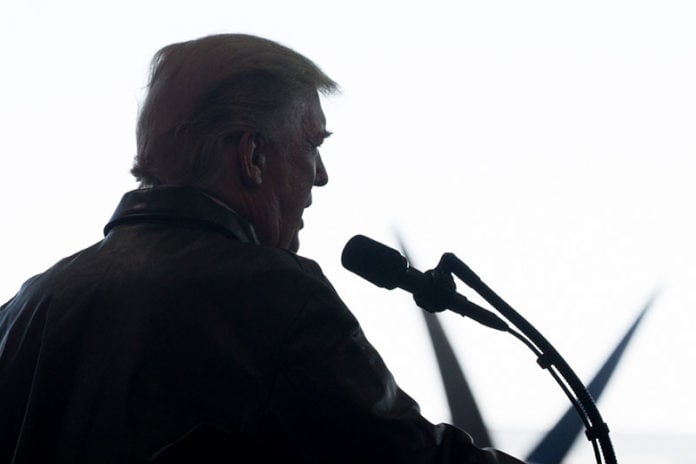Last month, Robert Mueller’s investigators informed Trump’s legal team that the President was no longer being considered the target of a criminal investigation. These legal terms mean that – for now – Mueller has not found any evidence to connect President Trump directly with any criminal activity.
When the word first came out to the media, many took this as a positive sign that the President is now no longer under the microscope or in jeopardy, however, other legal experts warn there could still be trouble ahead.
Mueller has described the President as a subject in his investigation, but no longer the subject of a ‘criminal investigation’. Referring to Trump as a ‘subject’ in an investigation means that he is still the main focus of the entire investigation.
Prosecutors refer to someone as a ‘subject’ when they believe that he has engaged in something illegal or something that is under investigation, but they don’t have sufficient evidence to prove their theory. A target, on the other hand, is someone against whom prosecutors have gathered enough evidence to indict him, someone who can be linked backed to a crime.
President Trump being a subject of the Mueller probe has left his inner circle divided, while his legal advisors are still pondering their next move. Some of his legal team believe that this is Mueller’s way of baiting Trump into an interview where he will try to collect evidence against Trump.
Mueller has repeatedly stressed that he will not end his investigation until he interviews the President personally. The concern is, now that Trump feels he has nothing to fear, could walk into an interview over-confident and become victim to clever legal “Got Ya” style questions.
On Tuesday, Trump’s Chief Counsel Jay Sekulow, White House Press Secretary Sarah Huckabee Sanders, White House Attorney Ty Cobb, Spokesman for the Special Counsel’s office Peter Carr, and John Dowd all declined to comment on this issue.
According to legal commentators, Mueller’s description of the President being a subject, in no way means that he is out of legal peril. Most warn that a person’s own testimony can be used to turn a subject into a target.
“If I were the President, I would be very reluctant to think I’m off the hook,” said Keith Whittington, who is an impeachment expert, and a politics Professor at Princeton University.
“My sense of it is the President — given that information — ought to have pretty fair warning anything he’s saying in the deposition would be legally consequential. Depending on what he says, it could wind up changing how the special counsel is thinking about him.”
If Mueller gets his hands on even a piece of evidence that proves that President Trump has engaged in any sort of criminal conduct, then he can write a detailed report, that can then be used by the Congress to launch an impeachment proceeding based on findings.
“The President’s personal risk is primarily on the impeachment front,” said Whittington. “Even if there are not things that lead to indictment, there may be matters that warrant an impeachment investigation and proceedings.”
Another such warning came from Solomon Wisenberg, who was a deputy independent counsel in the probe against former President Bill Clinton; while Clinton was still in office.
“Mueller hasn’t hesitated to [charge] people for lying on some pretty tangential stuff,” said Wisenberg.
“I think he would do much better than people think,” Wisenberg stated while adding, “But there are plenty of instances where a guy walks into a grand jury a subject. He gets out and is told: ‘Guess what, you’re a target now.’ ”






























